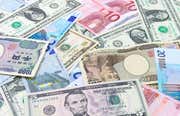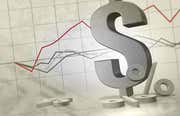
|
A company’s Board of Directors must declare all dividends. Four dividend-related dates are important to this process:
Declaration Date
The declaration date is the date the dividend is announced by the Board of Directors. The declaration statement includes the size of the dividend, the date of record and the payment date (see below). Once a dividend is declared, the company has a legal responsibility to pay it.
Record Date (or Date of Record)
When a company announces a dividend, it sets a record date – the date you must be on the company’s books to receive the declared dividend. On the record date, the company determines its shareholders, or “holders of record,” and establishes who is sent financial reports, proxy statements and other information.
Ex-Dividend Date (or Ex-Date)
After the company sets the record date, the ex-dividend date is set in accordance with stock exchange rules. If you buy the stock before the ex-dividend date, you’ll receive the dividend – but if you buy on or after the ex-date, you won’t (in this case, the seller of the stock is entitled to the dividend). As an example, assume that stock ABC recently announced a cash dividend with an ex-dividend date of December 7. If you buy 100 shares of ABC on that date (or after), you won’t receive the dividend, but if you buy the shares on December 5 – before the ex-dividend date – you’ll be entitled to the next dividend. (For more, read Why Don’t Investors Buy Stock Just Before the Dividend Date and Sell Right Afterwards?)
The ex-dividend date is usually set one business day before the record date. A stock’s price may increase by the dollar amount of the dividend as the ex-date approaches. On the ex-dividend date, the exchange may reduce the price per share by the dollar amount of the dividend. [L3]
Payment Date (Payable Date)
The payment date is the scheduled date the company pays the declared dividend. Only shareholders who own the stock before the ex-dividend date are entitled to the dividend.
Here’s an example that shows the timeline for a dividend Coca-Cola paid in Oct. 2017:
|
Type |
Declaration Date |
Ex-Dividend Date |
Record Date |
Payment Date |
|
Date |
July 21, 2017 |
Sept. 14, 2017 |
Sept. 15, 2017 |
Oct. 2, 2017 |
|
Notes |
KO announces a dividend. |
The date before which you must own KO to be entitled to the dividend. |
The date by which you must be on KO’s books as a shareholder to receive the dividend. |
The date KO pays the dividend to shareholders. |
Figure 2: Important dividend dates.
Introduction To Dividends: Investing In Dividend Stocks
-
 Trading
TradingUnderstanding How Dividends Affect Option Prices
Learn how the distribution of dividends on stocks impacts the price of call and put options, and understand how the ex-dividend date affects options. -
 Investing
InvestingHow Dividends Affect Stock Prices
Find out how dividends affect the underlying stock's price, the role of market psychology, and how to predict price changes after dividend declarations. -
 Investing
InvestingMake ex-dividends work for you
Learn what happens to the market value of a share of stock when it goes "ex" and why. Find out how to keep your dividends out of the tax man's hands. -
 Investing
Investing3 Dividend Trends in the S&P 500 Index (TSN, LUV)
Analyzing recent financial performance of companies demonstrating an inclination to issue consistent dividends to shareholders on a quarterly basis. -
 Investing
InvestingWhy Dividends Matter To Investors
There is much evidence as to why dividends matter for investors, profitability in the form of a dividend check can help investors sleep easily. Learn more. -
 Financial Advisor
Financial AdvisorHow mutual funds pay dividends: An overview
The process by which mutual fund dividends are calculated, distributed and reported is fairly straightforward in most cases. Here's a look. -
 Investing
InvestingAAPL: Apple Dividend Analysis
Apple's dividend has had healthy growth ever since its 2012 reinstatement, thanks to Apple's continuously rising revenue, earnings and operating cash flow. -
 Financial Advisor
Financial AdvisorIncome tax on mutual funds: The basics
Learn about the basics of income tax on mutual funds, including what types of income may be subject to the capital gains tax rate.


